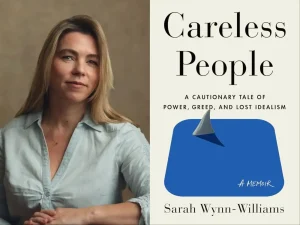My most recent visit to Israel, coming as it did in the midst of Israel’s efforts in Gaza to halt the rain of deadly missiles into its heavily populated cities, was unique. It was the first time in all my more than 100 visits to Israel that the highlight of my stay was a shopping spree in Tel Aviv.
I know it sounds absurd, but it is true. It is true even though the trip, a yearly Rabbinic Cabinet of State of Israel Bonds mission, had many of the expected ingredients, including a security briefing, a lecture on the challenges of media biases and hearing from some residents in the south of Israel.
There was even a meaningful bar mitzvah celebration for a child from Sderot, whose celebration had to be postponed because of the dangerous reality in Sderot.
There was a visit to Be’er Sheva, where we saw the point of impact of a Grad missile into a school. Had the school been open when the missile hit, the entire class would have killed. Thankfully, the Be’er Sheva mayor had ordered the school closed for that day, and it remained closed for a few more weeks. The day after our Be’er Sheva visit, another missile rained on Be’er Sheva, causing injury and damage.
In spite of all these “highlights,” the shopping spree in Tel Aviv was the biggest highlight. You are probably scratching your head in wonder. So, let me explain.
A while ago, the municipality of Tel Aviv decided that it must do something for the residents of the south. Its people have long suffered from the constant barrage of missiles. Hundreds of deaths, many more injuries, extended psychological trauma, closing of schools, inability to live a normal life are all the result of this constant terror.
Additionally, the impact on businesses in the south has been devastating, with attendant severe impact on families trying to eke out a livelihood. So, Tel Aviv invited the businesses of the south to bring their wares to a gigantic hall, about the size of a football field, to the port in north Tel Aviv. For two days, this market became the centre of business in Tel Aviv.
All the merchants of Tel Aviv had to know that this would draw away customers and reduce their business. But that did not matter. What mattered was that everyone had to do something to help their brethren in their travail. And they did.
What a remarkable sight it was. Not the fact that so many businesses showed up and exhibited their wares, everything from Judaica, clothing and wine to vegetables, cake, flowers, cosmetics and jewelry. What was remarkable, indeed truly inspirational, was the explosion of people who came to the market. It was almost impossible to walk in the hall, so full was it.
People like me who came from abroad were overwhelmed. We bought as much as we could, whether we needed the items or not, just to be part of this love-fest.
What a defining moment it was – to see a city open its heart in such a massive display of empathy. This was more than a market – this was a display of love and appreciation, a manifestation of understanding and compassion. It was community as it should be. It was Israel at its very best.
There have been other such expressions, including people opening their homes to residents under siege – residents of the north urging the people of the south, who welcomed them a few years ago during the Katyusha siege, to join them for respite, prayer vigils, and the list goes on.
Bu the Tel Aviv market was the biggest display of love. One could not help but come away full of confidence and hope – that Israel full of love will overcome the dark forces of hate and prevail in its simple desire to live in peace.
Rabbi Reuven Bulka is spiritual leader of Congregation Machzikei Hadas in Ottawa and co-president of Canadian Jewish Congress.






